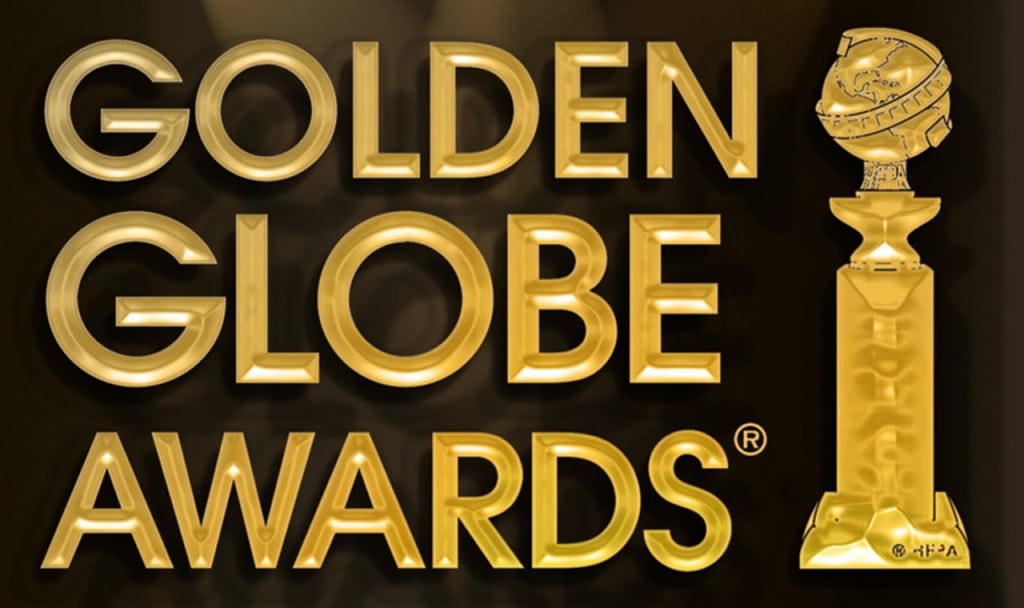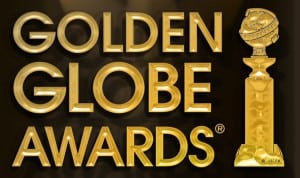
 There are plenty of criticisms of the Golden Globes, the yearly, early-January awards event that honors film and television. Critics are OK with the hybrid nature of the Globes—most Hollywood awards honor either film or television. The main issue is with the tiny Hollywood Foreign Press Association, which has produced the Globes since 1944. The argument is that its 90 members, all foreign journalists based in southern California, have far too much sway over what happens with much larger awards—the Emmys (television) and Oscars (film), which come later in the year. Moreover, this group hardly is representative of the Hollywood press, the argument goes.
There are plenty of criticisms of the Golden Globes, the yearly, early-January awards event that honors film and television. Critics are OK with the hybrid nature of the Globes—most Hollywood awards honor either film or television. The main issue is with the tiny Hollywood Foreign Press Association, which has produced the Globes since 1944. The argument is that its 90 members, all foreign journalists based in southern California, have far too much sway over what happens with much larger awards—the Emmys (television) and Oscars (film), which come later in the year. Moreover, this group hardly is representative of the Hollywood press, the argument goes.
Thanks to broadcast and cable television coverage of the Globes, particularly the fashions worn on the red carpet, and now extensive social media buzz, the awards have grown significantly in stature, with seats in the small-ish ballroom at the Beverly Hilton Hotel becoming one of the toughest tickets in town.
All criticisms aside, a Globe nomination or, even better, a win can be a tremendous boost for little-known actors, directors, studios and television networks. This leads to
Lesson 1: An award nomination and better, a win, can do a lot for a career. A significant award, like a Golden Globe, can put a career into orbit. In 2003, BBC America was an obscure cable network when one of the series it carried, The Office, was nominated for a Globe in the Best Television Series: Music or Comedy category. Seated in the rear of the Beverly Hilton’s ballroom, near the kitchen, BBC America’s small management team, the series’ star and co-creator Ricky Gervais and other members of the cast had to crisscross their way through the maze of tables containing much bigger stars to reach the podium and accept the award. To say their win was highly unexpected is an understatement.
The award was a catalyst for several careers, including those of Gervais and The Office co-creator Stephen Merchant. It also literally put the network and the series on the proverbial map. As you know, NBC adapted the series for U.S. viewers, launching the career of Steve Carell among others. Gervais now has hosted the Globes four times. Paul Lee, the BBC America head at the time of The Office win, rode that Globe to a position with a more established network, ABC Family, a short time later. He’s now in his 5th year running ABC's Entertainment unit, overseeing all of the creative seen in primetime on that broadcast network. In plain English, he picks the shows you watch on that network each night. It's a huge job.
Last night’s Ricky Gervais was Rachel Bloom. Crazy Ex-Girlfriend was The Office. Bloom, 28, stars in the comedy and musical series about an obsessed childhood sweetheart on a network called The CW. Like Gervais, Bloom also created the series she stars in. Most of you are probably thinking, Rachel who? The CW? Crazy ex what? Those were the same questions people were asking in 2003 about Gervais, The Office and BBC America. Bloom’s show is so obscure that Sunday morning, during the TV Critics Tour in Pasadena, CW head Mark Pedowitz was peppered with questions from critics about the show’s future due to its poor ratings. Pedowitz said he’s fully supportive of the series, which features clever musical numbers within its comedy plotline. He offered few details about increased marketing for the show, although it’s likely that Bloom’s Golden Globe will be part of the effort.
The takeaway? Awards can be good for brands. And you never know who will win. But you need to enter to have a chance. As the slogan for Lotto says, "You gotta be in it, to win it." This leads to...
Lesson 2: Be Prepared to Win. As you can see with the Globes, it’s sometimes very difficult to know who’s going to win. When Gervais won for The Office in 2003 it was a total surprise and his speech showed it. Mad Men lead Jon Hamm, who’s been nominated umpteen times, had been shut out since his first Golden Globe for the series' rookie season in 2008—until Sunday night. He, too, was unprepared last night. The obvious takeaway: If your executive is nominated for an award, he or she could win. Doesn’t it make sense to get your executive, or whoever is going to accept the award, prepared with a speech that he or she practices with you at least a few times?
Lesson 3: There’s a Time and a Place. Insulting jokes, once in a while, work. Too many of them and audiences can be turned off. Some of Ricky Gervais’ material last night was funny, but much of it was at the expense of others. Depending on your taste, you enjoyed his humor or thought it was too crude for the occasion. We won’t judge him here, except to say that in a business setting the unwritten rules for joking are much stricter. And we’re not even referring to being politically correct. We can’t tell you how many times we’ve seen business groups engage comedians to entertain at functions who told off-color jokes and even insulted specific members of the audience (one time we saw a comedian say a woman in the audience looked like someone who'd be involved in a threesome; the woman in question was the head of a significant unit in the company, conservative and didn't find the joke funny in the least). You’d think businesses would know better than to hire comedians without giving them explicit guidelines. We’ve also attended business functions where politicians with extreme viewpoints were invited to speak to bipartisan audiences. What were the leaders of these groups thinking or not?
Lesson 4: When Dealing With Media Don’t Make The Situation About You. While we know your media-trained executives would never treat a journalist the way Jennifer Lawrence did last night at the Globes, vigilance is necessary. For example, during media interviews executives may not realize they are tipping their hand with journalists. We’ve seen executives who writhe and/or grimace, unconsciously probably, when journalists ask tough questions. It’s your job to keep them aware of these and other foibles.
Ms. Lawrence has succeeded in large part due to her considerable talent, but also because she is perceived as being relatable and down to Earth. Or at least as relatable as a multi-millionaire superstar actress in her mid-20s can be. Her image was dented last night.
Like Lawrence, executives, especially highly-paid CEOs and politicians, need to protect their public image as people the general public can relate to. It’s much better to be like Dame Helen Mirren, who strode to the back of the ballroom last night, dinner plate in hand, to clear her place—the actress said later she didn’t want to make a waiter come all the up to the front of the room on her account. That leads to...
Lesson 5: The Camera Sees Everything. Really, what did Leonardo DiCaprio do that was so bad? Lady Gaga hit his arm while he was looking the other way and he grimaced a bit. By the amount of coverage it received you’d have thought he’d decided to abandon acting in favor of becoming an investigative journalist. Oh, sorry, that’s Sean Penn. Seriously, not only your executives, but your brand must remember cameras now are everywhere. They’re at public functions like award ceremonies, but also in so-called private areas, like locker rooms. Presidential candidate Chris Christie found out they’re on Amtrak trains and KFC discovered customers will use cameras when the product they receive looks unlike the delicious food they’ve seen in advertisements. By U.S. law private citizens must be afforded some degree of privacy; celebrities and other public figures are not. Could the need for media training be more obvious?
Follow Seth Arenstein: @skarenstein

到此一游!